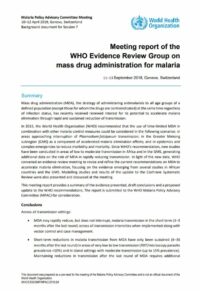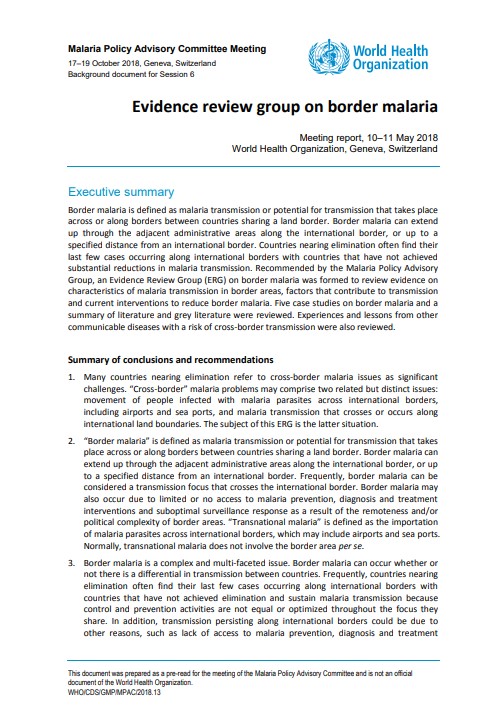WHO Evidence Review Group meeting report: mass drug administration for malaria
Collaborator(s): MESA, Spain
Published: 10/04/2019
Meeting report of the WHO Evidence Review Group on mass drug administration for malaria
Mass drug administration (MDA), the strategy of administering antimalarials to all age groups of a defined population (except those for whom the drugs are contraindicated) at the same time regardless of infection status, has recently received renewed interest for its potential to accelerate malaria elimination through rapid and sustained reduction of transmission. In 2015, the World Health Organization (WHO) recommended that the use of time-limited MDA in combination with other malaria control measures could be considered in the following scenarios: in areas approaching interruption of Plasmodium falciparum transmission; in the Greater Mekong subregion (GMS) as a component of accelerated malaria elimination efforts; and in epidemics and complex emergencies to reduce morbidity and mortality. Since WHO’s recommendation, new studies have been conducted in areas of low to moderate transmission in Africa and in the GMS, generating additional data on the role of MDA in rapidly reducing transmission. In light of the new data, WHO convened an evidence review meeting to revise and refine the current recommendations on MDA to accelerate malaria elimination, focusing on the evidence emerging from several studies in African countries and the GMS. Modelling studies and results of the update to the Cochrane Systematic Review were also presented and discussed at the meeting. This meeting report provides a summary of the evidence presented, draft conclusions and a proposed update to the WHO recommendations. The report is submitted to the WHO Malaria Policy Advisory Committee (MPAC) for consideration.
THEMES: Drug-based Strategies | Epidemiology | Impact of Interventions

